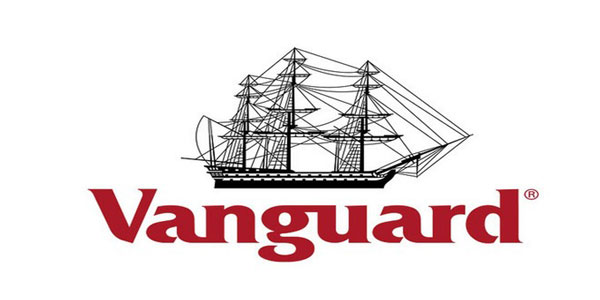Future-Proof Ventures: 7 Best Businesses to Launch in 2024
Sep 02, 2024 By Vicky Louisa
In an ever-evolving economic landscape, identifying business opportunities that promise sustainability and growth is essential for aspiring entrepreneurs. As we look towards 2024, several industries are poised for expansion, fuelled by technological advancements, shifting consumer preferences, and global challenges, such as climate change and public health concerns. This guide explores seven of the most promising ventures to consider launching in the upcoming year. These businesses not only reflect contemporary trends but also offer innovative solutions that cater to emerging needs. Whether you're a seasoned entrepreneur or just starting your journey, understanding these opportunities can provide valuable insights for navigating the complexities of the modern market. Embrace the future with foresight and creativity as we delve into the best business ideas for 2024.
1. Sustainable E-Commerce Platforms
As online shopping continues to dominate the retail landscape, there is a growing demand for sustainable e-commerce platforms that prioritise eco-friendly products and practices. Entrepreneurs can capitalize on this trend by creating marketplaces that exclusively feature ethically sourced, organic, or upcycled goods, catering to environmentally conscious consumers.
Additionally, integrating carbon offset programs and transparent supply chains can enhance brand credibility and encourage customer loyalty. By aligning with the values of the modern shopper, a sustainable e-commerce platform not only meets market needs but also contributes positively to global sustainability efforts.
2. Health and Wellness Coaching

With increasing awareness of personal health and well-being, the demand for health and wellness coaching services is on the rise. Entrepreneurs can establish businesses that offer personalized coaching in nutrition, fitness, mental health, and holistic wellness. Online platforms can facilitate remote coaching sessions, allowing professionals to reach a broader audience while providing flexibility for clients.
By harnessing social media for marketing and community building, wellness coaches can create supportive environments that motivate individuals to achieve their health goals. This venture not only aligns with current consumer interests but also addresses the growing need for mental and physical well-being in today's fast-paced world.
3. Renewable Energy Solutions
As the world grapples with climate change, the demand for renewable energy solutions has never been greater. Entrepreneurs can explore opportunities in solar, wind, and energy storage technologies, providing innovative ways to harness and distribute clean energy. Establishing a business that focuses on solar panel installation, energy-efficient appliances, or smart grid technology can appeal to both residential and commercial sectors, helping individuals and companies reduce their carbon footprints.
The rise of electric vehicles creates a niche market for charging infrastructure, offering further avenues for growth. By investing in renewable energy solutions, entrepreneurs not only contribute to a sustainable future but also position themselves in a thriving market driven by global energy transition initiatives.
4. Remote Learning and EdTech Solutions
The shift towards remote learning has transformed the educational landscape, creating robust opportunities for entrepreneurs in the EdTech sector. As schools and institutions continue to adapt to a hybrid model, there is a growing need for innovative platforms that facilitate engaging and interactive online learning experiences. Entrepreneurs can develop tools that offer virtual classrooms, gamified learning modules, or personalized educational content catering to various age groups and learning styles.
Moreover, incorporating features such as AI-driven tutoring systems, skill assessments, and collaborative project spaces can enhance the effectiveness of remote education. This venture not only leverages the increasing reliance on digital learning but also addresses the demand for accessible education, making a positive impact on learners worldwide. Investing in remote learning technologies positions entrepreneurs at the forefront of a rapidly evolving industry that prioritizes educational equity and innovation.
5. Telehealth and Virtual Care Services
The healthcare industry has experienced a paradigm shift with the rise of telehealth and virtual care services, offering unprecedented access to medical professionals and resources. Entrepreneurs can tap into this trend by establishing telehealth platforms that connect patients with healthcare providers, enabling consultations, diagnostics, and follow-ups from the comfort of home. This model not only enhances convenience for patients but also alleviates pressure on traditional healthcare systems.
With the integration of wearable technology and health monitoring apps, businesses can provide comprehensive care that empowers individuals to take charge of their health. Furthermore, as regulatory frameworks continue to evolve in favor of telehealth, this venture presents a lucrative opportunity for those looking to make a meaningful impact in the healthcare field while catering to the growing demand for accessible and efficient medical services.
6. Urban Agriculture Initiatives

As urban populations continue to grow, the concept of urban agriculture has gained traction, offering sustainable solutions for local food production. Entrepreneurs can explore ventures that promote vertical gardens, rooftop farms, and community gardening projects that utilise underutilized urban spaces. These initiatives not only provide fresh produce to urban dwellers but also foster a sense of community and self-sufficiency.
Incorporating technology, such as hydroponics and aquaponics systems, can enhance yield efficiency while lowering water usage. Additionally, education programs aimed at teaching urban residents about sustainable farming practices can cultivate interest and participation. By prioritizing local food systems, urban agriculture initiatives contribute to food security, reduce the carbon footprint associated with food transportation, and promote healthier lifestyles within city environments.
7. Eco-Friendly Transportation Solutions
With the increasing impact of transportation on global emissions, there is a growing demand for eco-friendly solutions that reduce carbon footprints and promote sustainable travel. Entrepreneurs can explore opportunities in electric vehicle charging infrastructure, car-sharing services, and bike-sharing programs. By providing convenient alternatives to traditional modes of transportation, businesses can help individuals make greener choices while reducing traffic congestion and air pollution in cities.
Moreover, initiatives such as developing biofuels or retrofitting existing vehicles with green technology also present avenues for innovation and sustainability in the transportation sector. As governments worldwide set ambitious targets to reduce emissions from transportation, entrepreneurs investing in eco-friendly solutions are positioning themselves at the forefront of a
Conclusion
The evolving landscape of various industries presents a wealth of entrepreneurial opportunities that not only align with consumer needs but also foster sustainable practices and innovation. From renewable energy solutions to urban agriculture initiatives, these ventures respond to pressing global challenges while prioritising health, accessibility, and environmental stewardship. As we navigate an increasingly complex world, entrepreneurs who seize these opportunities can make meaningful impacts, contribute to societal well-being, and thrive in markets driven by change and progress. Embracing these challenges not only paves the way for financial success but also cultivates a future that values sustainability and equity for all.

Budgeting for the Financial Phases of Retirement

Small Scale Investing: 5 Effective Strategies for Beginners

Navigating the Requirements for a Construction Loan: Building Your Dream Home

Top 4 Tips for Joining any Investment Club

How to Say No at a Car Dealership

How to Choose the Perfect 20-Year Term Life Insurance Policy?

Understanding the Concept of Money

Boosting Insight-Driven Digital Engagement at FIs

Which Are The Money Mistakes That Millennials Should Avoid: An Over

